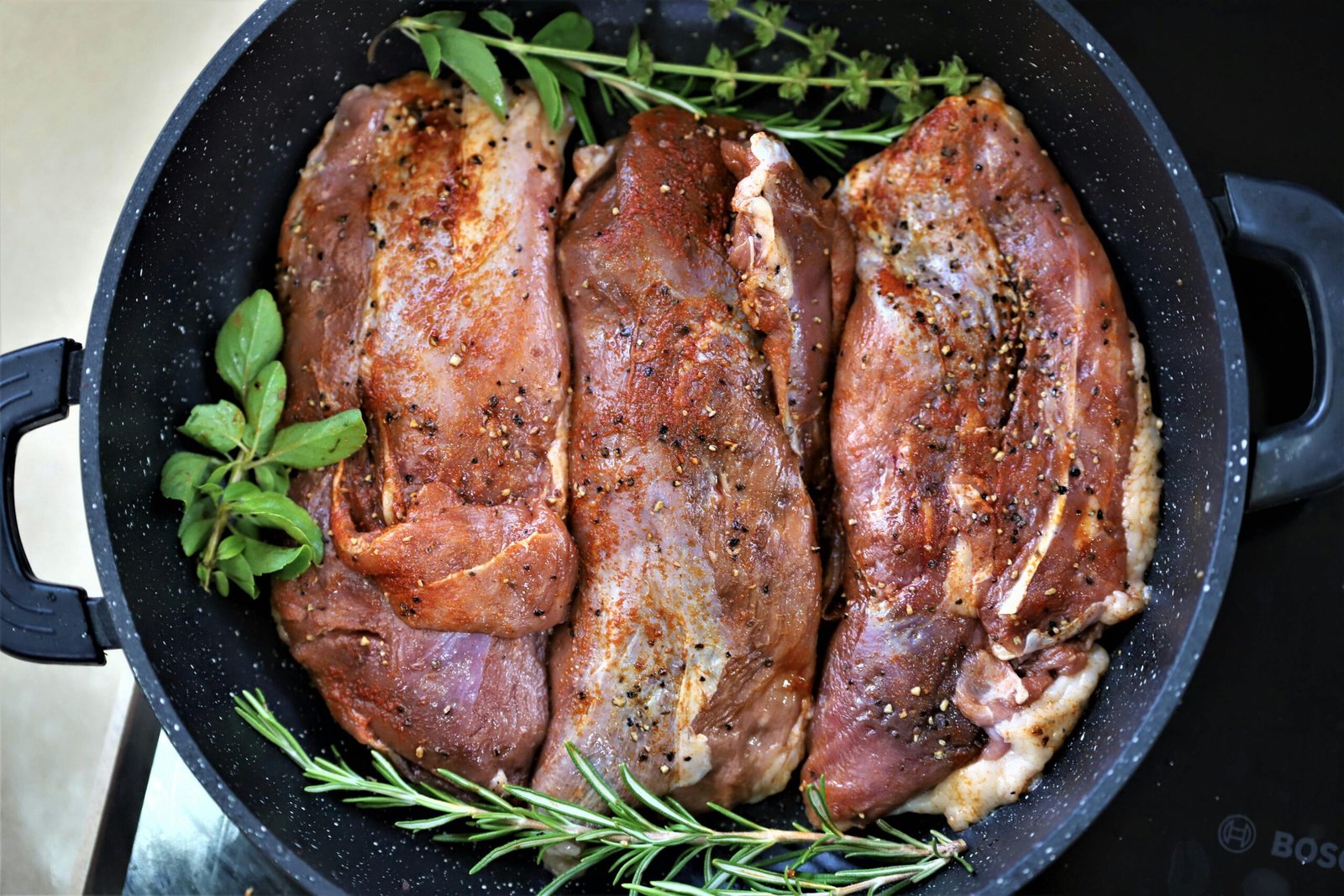When it comes to losing weight, many people think only in terms of cutting calories. While creating a calorie deficit is indeed the key to shedding pounds, the type of food you eat plays just as important a role as how much you eat. Your body needs quality fuel not only to burn fat but also to function well, stay energized, and avoid cravings that lead to overeating.
The best foods for weight loss are those that strike a balance: they help you feel satisfied, provide essential nutrients, and give you steady energy throughout the day. Instead of focusing on restriction or fad diets, building your meals around nutrient-dense, whole foods will naturally make weight loss more sustainable and enjoyable.
Let’s break down the categories of foods that are most effective for weight loss while keeping your energy levels high.
1. Lean Proteins
Protein is often called the “king” of weight loss nutrients, and for good reason. It’s the most filling macronutrient, meaning it keeps you satisfied longer and reduces overall calorie intake. It also helps preserve lean muscle mass while you’re losing fat, which is important for keeping your metabolism strong.
Some of the best protein-rich foods for weight loss include:
- Chicken breast and turkey – Low in fat, high in protein, and versatile in recipes.
- Fish such as salmon, tuna, and cod – Provide both protein and heart-healthy omega-3 fats.
- Eggs – Packed with protein, vitamins, and healthy fats. Studies show eating eggs for breakfast can reduce calorie intake later in the day.
- Plant-based proteins like tofu, tempeh, edamame, and seitan – Excellent for vegetarians and vegans.
- Legumes such as lentils, beans, and chickpeas – High in both protein and fiber, making them incredibly filling.
Aiming for protein at every meal helps control appetite and stabilize energy levels.
2. Whole Grains
Carbohydrates often get a bad reputation in weight loss diets, but they’re not the enemy. The problem lies in refined carbs, such as white bread, pastries, and sugary cereals, which spike blood sugar and cause energy crashes. Whole grains, on the other hand, are rich in fiber and nutrients that support steady energy and digestion.
Examples of weight-loss-friendly whole grains include:
- Oats – Ideal for breakfast, providing soluble fiber that reduces cholesterol and keeps you full.
- Brown rice – A nutrient-rich alternative to white rice that pairs well with vegetables and protein.
- Quinoa – A gluten-free seed that’s high in both protein and fiber.
- Barley and bulgur – Whole grains with a chewy texture and high fiber content.
Because they digest slowly, whole grains help you feel fuller for longer, preventing overeating and unnecessary snacking.
3. Fruits
Fruits are naturally sweet, making them a healthier substitute for desserts and processed snacks. They’re packed with vitamins, minerals, and antioxidants, plus they provide water and fiber to keep you hydrated and full.
Some fruits especially beneficial for weight loss include:
- Berries (blueberries, strawberries, raspberries): Low in calories, high in antioxidants, and great for snacking or adding to yogurt.
- Apples and pears: High in fiber, excellent for controlling hunger.
- Bananas: Provide quick energy, perfect for pre- or post-workout.
- Grapefruit: Studies suggest it may help with fat loss by reducing insulin levels.
- Avocado: Technically a fruit, avocados provide healthy fats and fiber that promote satiety.
While fruits contain natural sugar, their fiber content prevents the sugar spikes associated with processed sweets.
4. Vegetables
Vegetables are perhaps the most important food group for weight loss. They are nutrient-dense, low in calories, and high in fiber, meaning you can eat large portions without consuming too many calories. They also support gut health, which plays a role in weight regulation.
Best vegetables for weight loss include:
- Leafy greens (spinach, kale, arugula): Low in calories but packed with vitamins and minerals.
- Cruciferous vegetables (broccoli, cauliflower, Brussels sprouts): High in fiber and compounds that support fat loss.
- Zucchini and cucumbers: Hydrating and low-calorie, excellent for salads or snacks.
- Bell peppers and carrots: Provide crunch and sweetness with very few calories.
- Sweet potatoes: Higher in carbs but packed with fiber, vitamins, and antioxidants.
Including a wide variety of vegetables not only supports weight loss but also improves overall health.
5. Healthy Fats
For years, fat was demonized in the diet world, but research shows healthy fats are essential for weight management. They promote satiety, support hormone production, and keep your energy stable. The key is choosing the right sources.
Weight-loss-friendly fat sources include:
- Avocados – Rich in monounsaturated fats and fiber.
- Nuts and seeds – Almonds, walnuts, chia seeds, and flaxseeds are nutrient-packed and filling.
- Olive oil – A staple of the Mediterranean diet, linked to improved heart and metabolic health.
- Fatty fish (salmon, mackerel, sardines) – Provide omega-3 fatty acids that reduce inflammation and aid fat metabolism.
Since fats are calorie-dense, portion control is important. A handful of nuts or a tablespoon of olive oil goes a long way.
6. Dairy and Alternatives
Low-fat and high-protein dairy products can be helpful for weight loss. Options like Greek yogurt, cottage cheese, and kefir are rich in protein and probiotics, which support gut health. For those who are lactose-intolerant, plant-based options like unsweetened almond or soy yogurt can be great substitutes.
7. Hydration and Beverages
Liquid calories are one of the biggest culprits in weight gain. Sodas, sweetened coffee drinks, and alcohol add hundreds of calories without providing satiety. Replacing these with low-calorie beverages makes a huge difference.
Best choices include:
- Water – Essential for metabolism and appetite control.
- Green tea – Contains antioxidants and compounds that may support fat burning.
- Black coffee – In moderation, it boosts metabolism and energy for workouts.
- Herbal teas – Hydrating and calorie-free.
Practical Tips for Building Meals
- Combine protein, carbs, and fats in every meal for balance. For example, grilled salmon (protein + healthy fat) with quinoa (whole grain) and broccoli (vegetable).
- Prep meals in advance to avoid relying on fast food.
- Snack smart with fruit, nuts, or Greek yogurt instead of chips or candy.
- Practice portion control, especially with calorie-dense foods like nuts and oils.
Conclusion
The best foods for weight loss are not about deprivation but about making smart, sustainable choices. By focusing on lean proteins, whole grains, fruits, vegetables, healthy fats, and proper hydration, you’ll give your body the nutrients it needs to burn fat efficiently while keeping your energy high.
Eating for weight loss doesn’t have to be boring or restrictive. With the right combination of nutrient-rich foods, you can enjoy meals, feel satisfied, and make progress toward your health goals without feeling like you’re on a “diet.”




